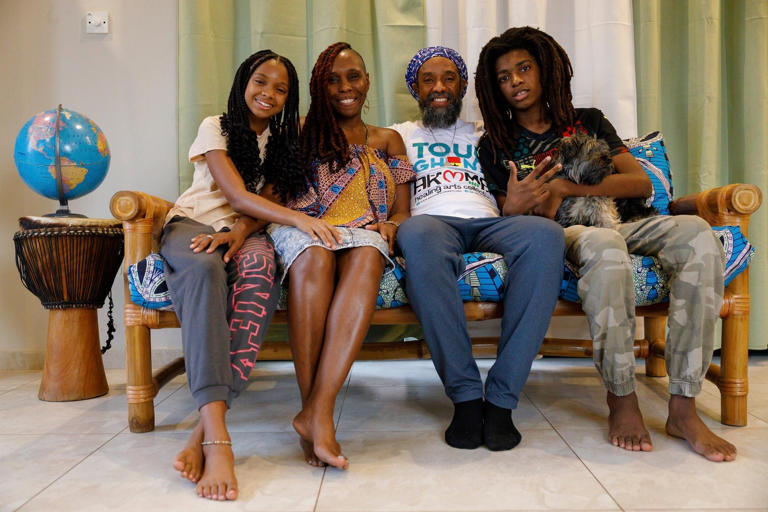
Our Correspondent | Africa Guardian
Flipping through her family album, Keachia Bowers paused on a photo of herself as a baby, resting on her father’s lap, with the 1978 album Africa Stand Alone by the Jamaican reggae band Culture in hand. “He joined the ancestors when I was 10 years old,” Bowers reflected. “I was supposed to come to Ghana with him.”
In November, Bowers and her husband, Damon Smith, were among 524 members of the African diaspora, predominantly Black Americans, granted Ghanaian citizenship. The ceremony came a day after Bowers marked the 10th anniversary of her father’s passing. Though he was a passionate Pan-Africanist with dreams of visiting Ghana, he never made it.
Bowers and Smith relocated to Ghana from Florida in 2023, having visited the region many times since the 1990s. They now run a tour business catering to Black travelers eager to visit Ghana and other parts of West Africa—or, like them, make it a permanent home.
This latest group of new citizens is the largest since Ghana launched the “Year of the Return” initiative in 2019, marking the 400th anniversary of the arrival of the first enslaved Africans in Virginia. The initiative, which was extended to “Beyond the Return,” has already facilitated the granting of citizenship to hundreds from countries like Canada, the U.K., and Jamaica.
For Bowers, moving to Ghana brought a sense of peace that was lacking in the U.S. “When we see stories of people like Trayvon Martin and Sandra Bland being murdered in their homes, that creates trauma,” she shared. “I worry for my son, Tsadik, especially. In America, a tall, Black male with locs like him is treated as a threat.”
While Americans face few barriers to living in Ghana, with most paying an annual residency fee, Bowers sees citizenship as something far more significant. “I didn’t need citizenship to know that I’m African. Wherever I go, I’m melanated,” she said. “But for my ancestors, those who never made it back, that passport is for them.”
The trans-Atlantic slave trade forcibly removed between 10 to 15 million people from Africa, with many departing from Ghana, then known as the Gold Coast. Memorials to the trade, such as the “Door of No Return” in various West African nations, stand as stark reminders of its brutality.
The emotional significance of returning is palpable for many, with videos from recent citizenship ceremonies showing jubilant individuals waving Ghanaian flags and celebrating. Deijha Gordon, 33, a Brooklyn native who moved to Ghana in 2019, recalls her first visit in 2015: “I knew this was a place where I wanted to be and where I wanted to show other diasporans that we belong here.”
Gordon opened Deijha Vu’s Jerk Hut, a Jamaican food truck in Ghana. She expressed her joy upon receiving her citizenship, saying, “It just feels good to have a connection to an African country as a Black American. In America, we don’t have much to trace our roots to—except Africa. Now, I feel like I’ve done something right.”
Although the process for gaining Ghanaian citizenship is not clearly outlined, it is granted through a presidential concession, with a focus on diaspora residency. Festus Owooson, from the Migration Advocacy Center, emphasized that while the government pitches the initiative as an economic opportunity, the true benefit is intangible. “It’s a relief, something you can’t put a price on,” he explained.
Despite Ghana’s upcoming presidential transition, Owooson believes Black Americans and other diasporans will continue to be granted citizenship. The children of Bowers and Smith received citizenship automatically following the ceremony.
For Bowers, her father’s spirit is alive in this new chapter. “He wanted to experience repatriation for himself, and now I feel like he’s experiencing it through me,” she said, a sentiment that resonates deeply within the Rastafarian faith, which emphasizes repatriation as the ultimate life experience.
___
